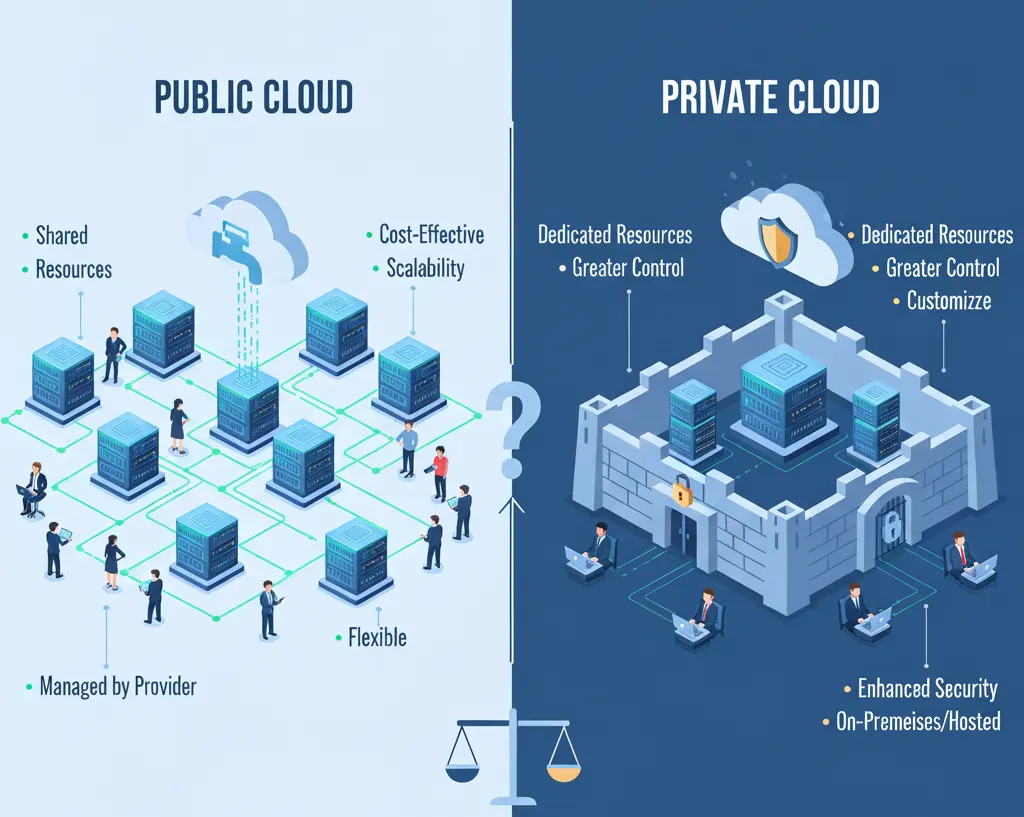Which is the Best Cloud Storage for Business?

The best cloud storage for business depends on your needs. Google Workspace (Drive) is great for collaboration, Microsoft OneDrive for Business works well with Microsoft 365, Dropbox Business is simple and integrates with many apps, Box offers strong security, and Amazon S3 is ideal for large data storage. You can also consider Athena by Webworks Co.for reliable, locally focused cloud storage with customizable support. Choose based on security, integrations, budget, and scalability.
Data has become the backbone of every company. From customer information and project files to creative assets and internal reports, businesses rely on secure and reliable storage every day. That’s why choosing the best cloud storage for business in 2025 is more than just a technology decision ,it’s about ensuring productivity, security, and growth.
But with so many options available, how do you decide what’s truly the right fit for your business needs? Let’s break it down step by step.
Why Business Need Cloud Storage?
For companies of all sizes, cloud storage has become the foundation of work. Here’s why:
- Data security: Businesses handle sensitive data like client contracts, financial records, and customer details. Losing such data can damage trust and reputation. Cloud storage provides safe backups and encryption.
- Collaboration: Whether your team is sitting in the same office or spread across multiple cities, cloud storage makes it easy to share and work on files together in real time.
- Cost efficiency: Maintaining physical servers is expensive and requires ongoing maintenance. Cloud storage removes that burden.
- Accessibility: Files can be accessed anytime, anywhere, from any device—perfect for remote work and flexible schedules.
Example: Imagine a marketing agency handling ten clients. Each client has its own creative assets, videos, and reports. With cloud storage, the agency can keep everything separate yet accessible to the right team members, saving time and avoiding mix-ups.
Key Factors To Consider Before Choosing Cloud Storage

Not every solution is built the same. Before choosing, look closely at these important aspects:
- Cost and pricing transparency: Check if the pricing model is simple or filled with hidden charges like per-user fees or extra storage add-ons.
- Scalability: As your business grows, your storage needs will too. The right provider should make it easy to expand without forcing you to migrate.
- Security features: Look for encryption, role-based access, and activity tracking to protect sensitive files.
- Multi-user access: A good solution must allow multiple admins and users without restrictions.
- Ease of use: A clean and simple interface makes life easier for your team, especially for non-technical members.
- Reliability: Frequent downtime can disrupt work. Ensure the provider has a strong reputation for uptime and support.
Also Read , How Much Does 1TB of Cloud Storage Cost in India?
Public Cloud vs. Private Cloud for Business

When it comes to cloud storage solutions for business, the choice often comes down to public cloud or private cloud.
Public Cloud
- Shared resources across many users.
- Subscription-based pricing (often per user or per storage).
- Easy setup, but costs rise with more users.
- Less control over customization.
Private Cloud
- Dedicated, isolated environment just for your company.
- Unlimited users and admins in many cases.
- Role-based access and permissions.
- Costs are predictable with no surprise add-ons.
- Better suited for businesses handling multiple teams or clients.
For small teams, public cloud might be sufficient. But for growing companies that want complete control and strong security, private cloud is often the better option.
Must Have Features for Business Cloud Storage
To ensure your business runs smoothly, look for these essentials:
- Unlimited users: Avoid platforms that charge per user—it becomes expensive as your team grows.
- Isolated workspaces: Keep different clients, departments, or projects separate to prevent mix-ups.
- Role-based permissions: Control who can upload, edit, or view files to maintain order and security.
- Secure file sharing: Send files confidently without worrying about leaks or unauthorized access.
- Real-time logs: Track who accessed or changed files for complete transparency.
- Scalable performance: As your business expands, storage and speed should grow with it, without forcing upgrades you don’t need.
Example: A design firm might give its creative team full upload and edit rights while clients only get viewing permissions. Role-based features make this simple to manage.
Also Read, Why is a Cloud Storage WiFi Camera a Smart Choice Today?
Cost Considerations for Businesses
One of the most common challenges is understanding the real cost of cloud storage.
- Subscription plans: Many providers advertise low entry prices but charge separately for users, admins, or extra storage.
- Hidden costs: Look out for bandwidth fees, premium support charges, or limits that force you to upgrade.
- Predictability: For businesses, stable monthly costs are better than constantly changing bills.
Example: A company with 50 employees may think it’s paying for “1TB storage,” but if each user requires an additional paid account, the bill can double or triple. That’s why transparency matters.
Final Thoughts
For personal use, public cloud systems are still convenient and affordable. But when it comes to businesses, whether it’s a growing startup, a busy agency, or a large enterprise, the smarter choice is private and secure cloud storage.
It gives you better control, reduces the risk of hidden costs, and ensures your teams can work together efficiently without restrictions.
That’s why the best cloud storage for business in 2025 is one that offers unlimited users, isolated workspaces, and strong security while keeping costs predictable.
If you’re exploring private cloud solutions, Manju by WebWorks Co. is designed with businesses in mind. It provides unlimited workspaces, role-based permissions, and scalable storage without hidden surprises. Built for teams and companies of all sizes, it’s a secure and flexible choice that grows with you.
Frequently Asked Questions
Q1. Which cloud platform is best?
Athena Cloud is an excellent choice for businesses needing reliable performance and strong support, while AWS remains the largest global provider.
Q2. Which is cheaper, AWS or Google Cloud?
Google Cloud is often cheaper than AWS for many services, but Athena Cloud can provide competitive, tailored pricing depending on your needs.
Q3. Which cloud is best for startups?
Startups can benefit from Google Cloud’s free credits and AWS scalability, but Athena Cloud offers personalized support and flexible plans ideal for growing teams.
Q4. Who owns cloud storage?
The provider, such as Athena Cloud, Amazon, or Google—manages the servers, but you retain ownership of your data.
